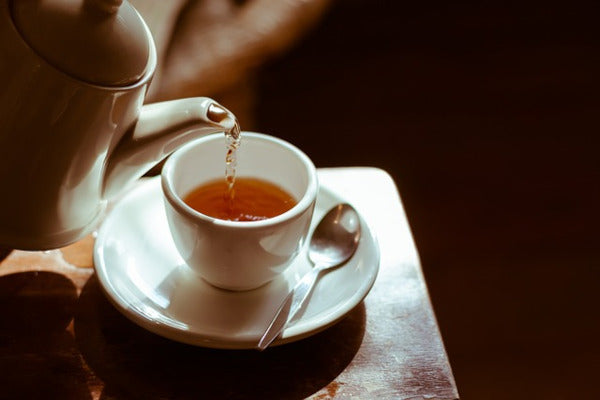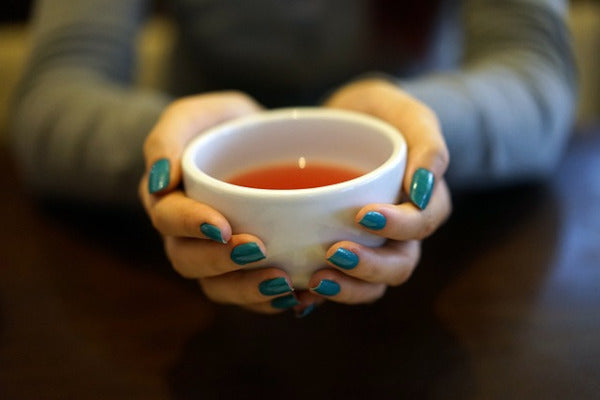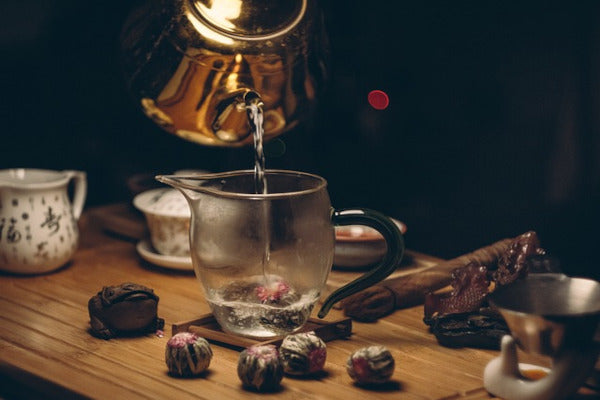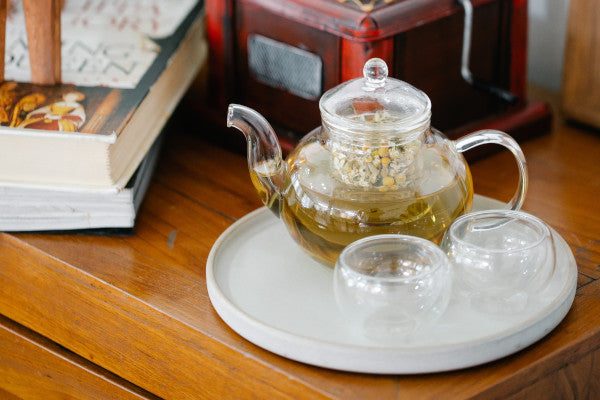If you want to know if matcha tea expires, you've come to the right place. Matcha tea is becoming an energizing drink for many people, which is why its popularity has grown. If you're new to this wonderful beverage, you should know how to store it and what the shelf life of matcha tea is.
Any lover of this beverage wonders if this tea actually expires. It doesn't matter what form it comes in—tea bags or dried leaves—the key lies in how we store it. Over time, its properties are affected, especially in terms of aroma and flavor.
At Tétique, we supply the country's finest teas . Years of experience guarantee the quality of our products.
Shelf life of matcha tea. Does it go bad?
Matcha tea is considered a dry product. Like coffee and other teas, it deteriorates normally, meaning it loses flavor and aroma over time. Matcha tea's properties last 1 to 2 months after opening, and if stored properly, it can last for 12 months. Drinking it after it expires won't be a problem, although its flavor won't be the same.
But its shelf life will also depend on its grade. For example, premium or ceremonial grade olives will lose their sweetness over time but can still be used in recipes for a long time. Of course, lower-quality olives will spoil more quickly.

Matcha tea is a delicate and expensive tea, perfect for sipping leisurely throughout the day to take full advantage of all its properties. You may not like the taste at first, but that's normal. Most people prefer it sweetened or at least slightly flavored. That is, if you drink it occasionally, you won't get used to it, but if you drink it daily, you'll learn to appreciate the delicate notes of its flavor and aroma.
However, just because tea has lost some of its flavor and aroma doesn't mean you should throw it away; it can still be useful. For example, it can be used in some recipes, such as ice cream, cakes, and omelets. However, it should retain a certain aroma and flavor despite its loss of quality. If you notice that it's very yellowish or bitter, it's best to throw it away.
How to preserve the shelf life of matcha tea
When you open matcha tea from its packaging, it begins to deteriorate upon contact with oxygen. The same happens with any product. Therefore, the best way to preserve it is to store it in an airtight container. This also applies to loose tea .

We know that matcha tea isn't cheap, so it's important to know how to store it. Furthermore, it doesn't expire; it loses its properties over time. To preserve it for longer, you should make sure to store it:
- Where there's no moisture. If there's one thing that damages any dried product, it's precisely where there's water. Therefore, store it where you're sure there's no moisture. If you decide to store it in a cupboard, make sure it's away from the stove, because the heat it emanates isn't good for the tea.
- In an airtight container. Another drawback is exposure to air, which immediately loses flavor and aroma if not properly covered. If you notice the wrapper isn't tight enough, store it in another tightly sealed container to prevent oxidation.
- In a cool place away from sunlight. Exposing it to sunlight is not good for matcha tea or any dry product. Therefore, you should ensure that the packaging is opaque or, alternatively, store it in a cool, dry, and dark place, such as a closet.
- In the refrigerator. The best option is to store matcha tea in the refrigerator, keeping it in an airtight container. Many brands recommend storing it there. Refrigerated conditions slow the deterioration process and preserve it for longer. Keeping it at room temperature will preserve its flavor and color better.
At Tétique we offer the best matcha tea of the country, acquire it and delight your hospitality and cafe customers with its excellent properties.
Signs that march tea is deteriorating

Even with the precautions we've already outlined, the best way to determine the shelf life of matcha tea is to open the container it's in. Below are some signs that your tea is deteriorating.
- Its green color is no longer vibrant or has a yellowish hue. If it still maintains its vibrant green color, it means there's no oxidation. When it begins to oxidize, it begins to look yellowish or grayish. At this point, it's best not to consume it.
- It has a bitter taste. When you try it for the first time, you'll notice that it tastes fresh, slightly sweet, but not bitter. However, the cheap ones do have a bitter taste from the start.
- It no longer has any aroma. Matcha tea certainly has a distinctive aroma that makes it unique. It's a grassy scent with a hint of sweetness. If you can't distinguish any aroma, it means it's lost some of its properties.
- You can also make a matcha tea , using some other familiar ingredients.
At Tetique, we pride ourselves on offering organic products of the highest quality. We work with local farmers and trusted suppliers to offer a wide selection of teas, infusions , and other natural products that have been sustainably grown and processed.
We're dedicated to helping hospitality, cafeteria, and restaurant businesses offer a unique and healthy experience to their customers. That's why at Tetique, we make sure to offer exceptional customer service so our customers can get the products they need quickly and efficiently.






